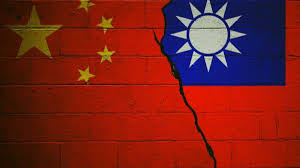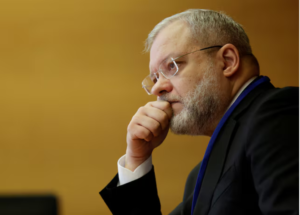Dynamics of import of goods in Jan-Feb 2024 by the most important items in relation to the same period of 2023, %
Source: Open4Business.com.ua and experts.news
Dynamics of export of goods in Jan-Feb 2024 by most important items in relation to same period of 2023, %
Source: Open4Business.com.ua and experts.news

State Aviation Enterprise “Ukraine” (Boryspil, Kyiv Region) on May 24 announced a tender for insurance of liability of the operator of a civil aircraft of commercial aviation for damage caused to third parties and liability of an air carrier for damage caused to passengers and luggage; aircraft insurance.
According to the message in the electronic public procurement system Prozorro, the tender was announced for the insurance of aircraft crew members, other aviation personnel and persons entitled to be on board the aircraft legally without purchasing tickets.
The expected value of the insurance services purchase is UAH 26.674 mln.
The amount of security for contract execution is 5% of the value of the procurement contract.
The deadline for submission of tender offers is June 1
As reported, the only participant in a similar tender announced on April 22, 2024 was “Ukrainian Fire Insurance Company” (UPIC Kiev) with a proposal of UAH 26.665 million, with an expected cost of UAH 26.674 million. However, on May 22, the company’s offer was rejected.
State Enterprise Ukraine was established to organize, provide and perform air transportation, special flights of the highest official delegations of Ukraine and other states within the country and beyond its borders in compliance with the requirements and rules stipulated in the relevant regulations.
civil aviation, INSURANCE, RISKS, State Enterprise Ukraine, TENDER

ADONIS Medical Group has launched corporate rehabilitation programs for demobilized employees of companies.
According to the medical group’s press release, ADONIS rehabilitation programs include a wide range of services to restore the physical, psychological and social status of patients.
Specifically, the program includes preparation for prosthetics and rehabilitation after prosthetic fitting, rehabilitation after gunshot wounds, shrapnel fractures of bones, burn injuries, including skin repair, and restoration of movement amplitude for contractures to maximize mobility after injuries.
“Initiatives like this not only contribute to the physical recovery of military personnel, but also impact their overall well-being and integration into active life. Companies like MHP set an example of civic responsibility and caring for their employees,” the medical group reported.
At the same time, ADONIS noted that it is ready to “cooperate with other corporations that value their employees and want to help them during this important period.”
“The return of servicemen to peaceful life is a difficult journey that requires not only physical recovery, but also psychological and social support. We develop programs taking into account the requests of companies,” ADONIS emphasized.
ADONIS is a network of private medical centers for adults and children. ADONIS private clinic was founded more than 25 years ago. Its network includes seven branches in Kiev and the region, including a rehabilitation center and a stem cell laboratory. Doctors at the clinic’s branches provide treatment in 65 medical fields. In war conditions, ADONIS branches with surgical units provide quality medical care to military and civilians.

Foreign direct investment (FDI) in mainland China’s economy in January-April fell 27.9% year-on-year to 360.2 billion yuan ($49.7 billion), according to the country’s Ministry of Commerce.
That included 58.5 billion yuan in FDI last month, the lowest since November. The figure fell 36% year-over-year and 32% month-over-month.
In January-April, about 12.7% of total investment was in the PRC’s high-tech sector.
As reported, FDI in 2023 fell 8% to 1.13 trillion yuan.
Experts Club Analytical Center and Maxim Urakin released a video analysis of how the GDP of the world’s countries has changed in recent years, more video analysis is available here – https://youtu.be/w5fF_GYyrIc?si=BsZmIUERHSBJrO_3.
Subscribe to Experts Club YouTube channel here – https://www.youtube.com/@ExpertsClub
CHINA, EXPERTS CLUB, GDP, INVESTMENT, MACROECONOMICS, URAKIN

Ukraine is negotiating to maximise possible imports of electricity from European Union countries to compensate for the generation capacity destroyed by the Russian attacks, Ukrainian energy minister said on Friday.
Russian missile and drone attacks on Ukraine’s energy sector have intensified since March, resulting in significant damage and blackouts in many regions.
The attacks have caused more than $1 billion of damage to the sector, leading to the loss of 8,000 MWh of generating capacity from the energy system, the government says.
Currently, Ukraine can import from the EU states no more than 1,700 Mwh of electricity simultaneously.
“We’re negotiating. Our task is to maximise this figure,” Energy Minister German Galushchenko told parliament.
“Technically, we can receive (import) more than 2,000 Mwh, even 2,400 Mwh. I’m sure a decision will be made,” he added.
Volodymyr Kudrytskiy, the head of Ukraine’s national power grid operator Ukrenergo, told Ukraine’s Telegraf that 1,700 Mwh is “the ceiling for now”.
“Everything will depend on how quickly our European colleagues – energy system operators of neighbouring countries – will be able to implement projects to expand the capacity of their grids,” Kudrytskiy said.
He said that European grid companies need time and money to reinforce some of their substations, install additional transformers or build new transmission lines.
“We think 3,500 to 4,000 Mwh of interstate interconnector capacity is something we can have in the horizon of five years,” Kudrytskiy noted.
IMPORTS
Energy minister Galushchenko did not say exactly how much imports are being discussed now, but Maxim Timchenko, the head of Ukraine’s largest private energy company, DTEK, said earlier this month that an increase to 2,200 Mwh could significantly improve the situation.
DTEK has lost about 90% of its power generation capacity due to Russian missile attacks in recent months.
DTEK data showed that Ukraine consumed around 13,000 Mwh before the attacks as of March 17 but after a series of Russian attacks on the energy system, consumption fell to 9,100 Mwh.
Due to power shortages, Ukrainian power grid operator Ukrenergo has been forced to introduce regular shutdowns of industrial consumers and households and maintain high import rates.
Problems with power generation can have a “potentially negative impact” on industry, especially the largest electricity consumers, the economy ministry said this week.